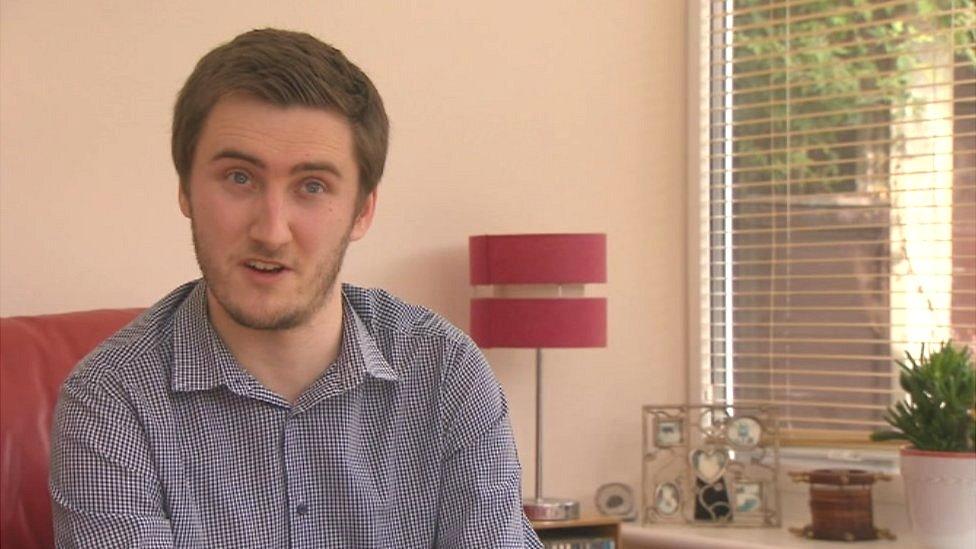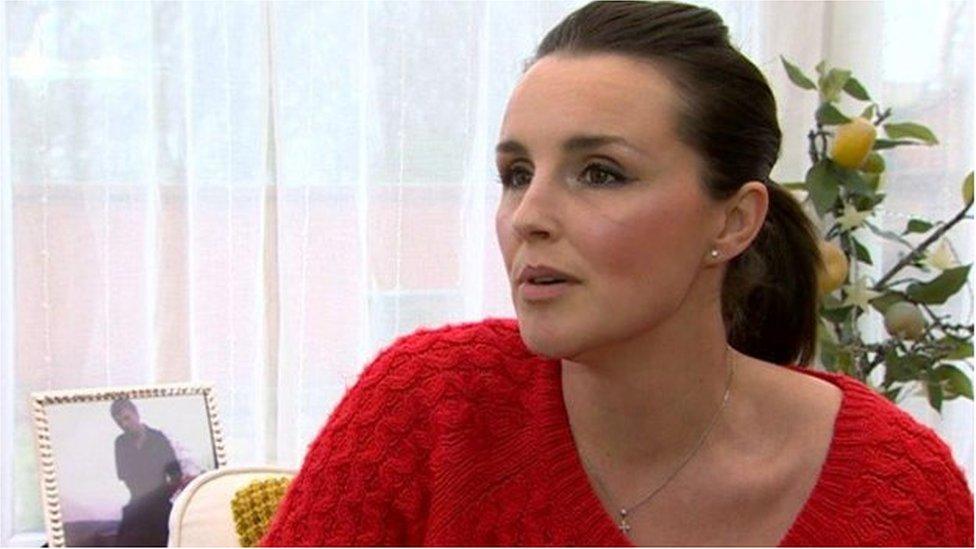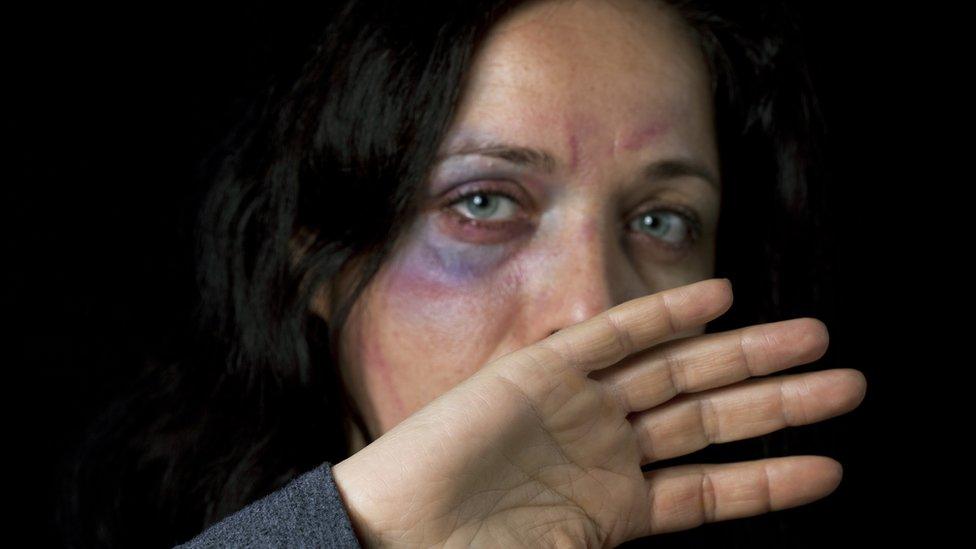Coronavirus: Abuse victims 'giving up court fights' amid delays
- Published

A victim of domestic abuse, whose identity is protected, said she would fight to get her story told despite others giving in
Delays and cancellations to court cases involving domestic violence due to the Covid-19 pandemic are causing pain and frustration, a victim has told the BBC.
The woman's identity has been protected but she said constant cancellations were a "revolving door you never come out of" and caused "incredible pain".
Leeway, a charity supporting abuse victims in Norfolk and Suffolk, said some were giving up on prosecutions.
The Courts and Tribunal Service said domestic abuse cases were prioritised.
The woman told BBC Look East that after several cancellations the revolving door "goes round and round and you just relive everything over and over again".
She has waited months to tell a jury what she has been through and has sometimes been given a week's notice of a cancellation.
"The pain is incredible because you're prepared for an ending and you don't get that ending so you're still living with it."
She said she would continue her fight for her time in court and become a voice for others.
"If I don't stand up I still remain a victim and I'm not doing that. I'm not backing down," she said.

Rhys Lloyd of Leeway understands why victims give in after waiting sometimes years for a court appearance
James Mulholland QC, from the Criminal Bar Association, said: "As time passes people who have to relive an horrific incident are going to become increasingly reluctant."
Charities supporting victims say urgent action is needed to deal with the delays or more women may give up fighting.
Rhys Lloyd, of Leeway, said: "Many people decide 'actually I don't want to go through this process any more' even though that might mean the perpetrator escapes justice."
The Courts and Tribunal Service said it was working with the judiciary to hold thousands of hearings in safety during the pandemic and urgent cases like domestic violence were a priority.
- Published7 May 2020

- Published27 April 2020

- Published6 February 2019
